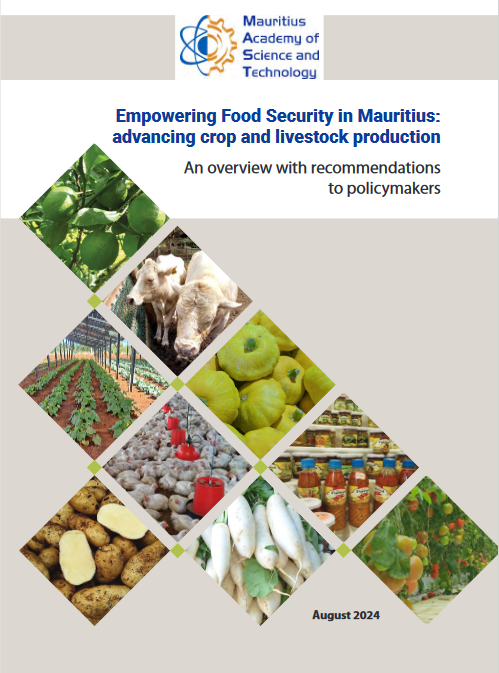Earlier in 2024, the GYA working group on Science Advice, co-led by Jovana Milic (University of Fribourg, Switzerland) and Laura Zimmermann (University of Georgia, United States), was part of a 3-months project led by the Mauritius Academy of Science and Technology (MAST) on “Strengthening science advice capability of the Mauritius Academy of Science and Technology (MAST): focusing on food security”. Project partners included the Academy of Science of South Africa (ASSAf), as well as the Young Academy initiative in Mauritius and the South African Young Academy of Science, SAYAS. The project had secured funding through the NASAC-IAP capacity building grant scheme.
The project aimed to enhance the expertise of MAST in offering science advice to policymakers, with food security identified as a major theme in the country. Support for the creation of a Young Academy in Mauritius was also part of the project. The GYA group shared knowledge and expertise during two hybrid workshops in a co-learning approach in national science advice and international cooperation.
The first workshop, in May 2024, introduced the concept of science advice and how to develop science advice systems that respond to specific institutional and socio-cultural contexts. GYA group member Justine Germo Nzweundji contributed a presentation on “Setting the scene: What is Science Advice? Why do we need Science Advice to Policymakers?, How do we formulate Science Advice for Policymakers and how do we communicate it?”, as well as a session on “Advancing Inclusion in Science Advice”. GYA member Natisha Dukhi, wearing her SAYAS hat, also presented.
A second workshop, in June 2024, saw GYA member Chibuike Udenigwe presenting on “Science Advice on Food Security: Key issues to Consider”. GYA member Devina Lobine, who is also part of the Young Academy initiative in Mauritius, then moderated the reporting and discussion part of the meeting.
One of the project outcomes is a booklet on “Empowering Food Security in Mauritius: Advancing Crop and Livestock Production”, which provides evidence-informed science advice to policymakers in Mauritius. The booklet lists 6 key recommendations on the road to achieving food security in Mauritius: optimisation of resources, promote climate-smart agriculture, modernize production, encourage mechanisation, establish support systems, integrate date and policies.
